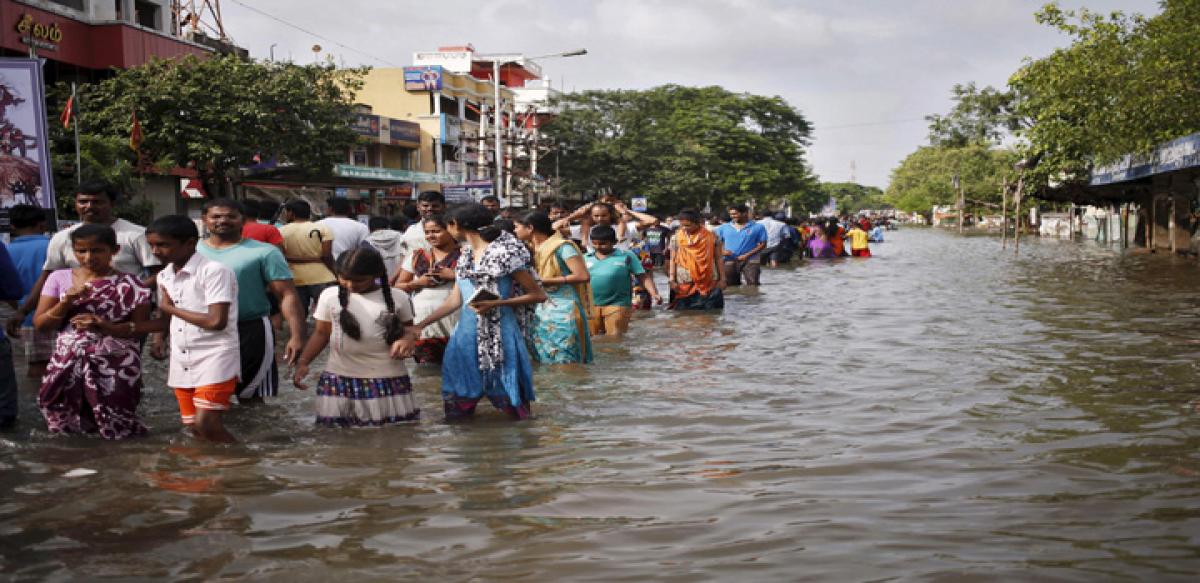The gender bias of global warming

In September 1995, the Beijing Declaration and Platform for Action laid out a framework for empowering women and removing barriers to gender equality, emphasising our obligation to pursue a world free from discrimination on the basis of gender. In the 20 years since then, in a seemingly different realm, the issue of climate change has spread beyond the laboratories, beyond the scientific journals,
In September 1995, the Beijing Declaration and Platform for Action laid out a framework for empowering women and removing barriers to gender equality, emphasising our obligation to pursue a world free from discrimination on the basis of gender. In the 20 years since then, in a seemingly different realm, the issue of climate change has spread beyond the laboratories, beyond the scientific journals, and beyond the legislative bodies of the world to become deeply rooted in public debate.
Both global warming and gender inequality, are widespread and have profound consequences on individuals and communities
In some countries, the issue is bitterly controversial; in others, the required course of action has never been clearer. Either way, what has become clear in recent years is the extent to which people are already suffering. With this comes the need to mitigate and adapt to new risks that previous generations didn’t face. In an increasingly vulnerable world, women are often disproportionately affected by climate-related risks.
I am not by any means an expert on issues of gender equality, but we don’t have to go far to find abundant evidence connecting gender inequality and climate change. The report on the impacts of global warming from the Intergovernmental Panel on Climate Change (IPCC), which details the most up-to-date knowledge on adaptation, vulnerability, and risk, points to imbalances in the ways women and men differ in their vulnerability to climate risks.
The IPCC report outlines how the effects of global warming are often felt most severely by the poor who are exposed to exacerbated risks from low-quality housing, a lack of access to services, and inadequate infrastructure. People living in poverty are particularly sensitive to declining crop yields and increases in food prices, both of which are already occurring.
As stated in the Platform for Action, the vast majority of the approximately one billion people living in poverty are women, a reality which itself leads to an inherent gender bias in vulnerability to climate change. But beyond this are long-standing inequalities that often put women – especially poor women – even more at risk than their male counterparts.
Extreme weather events such as droughts, floods, and storms register a higher mortality rate globally for women than for men. This isn’t random: antiquated gender roles often exclude women from decision-making processes, sometimes preventing them from taking the best course of action in an emergency. The IPCC cites studies discussing how many women in Nicaragua are expected to stay in their home, even in dangerous situations, which can put them at risk in the event of flooding, for example.
In the difficult aftermath of extreme weather events, higher rates of physical violence against women often occur, notably in two of the most economically developed countries in the world: the United States and Australia. Furthermore, the report points to how the lack of institutional protection or support can put women at risk when it comes to enduring individual extreme weather events and adapting to changing conditions in the long-term, especially where women have less access to information and community resources.
These resources could include information on how to respond in a dangerous, extreme weather event, support for methods of adaptation to changing conditions, and even education, which is a critical component in the empowerment of women. Gender-based inequalities perpetuate the vulnerabilities faced by women in a changing world, and yet, the above represent just a few examples.
When it comes to working towards equality between women and men, the human consequences of climate change bring out lessons that demonstrate why the Platform for Action is so important. This is a human rights issue, and one that is closely connected to fundamental components of our society, such as education and health.
Yes, men also face differentiated risks, depending on the region. The difference, however, is that these vulnerabilities aren’t caused by entrenched societal inequalities. Many climate-related risks to women can be alleviated by implementing societal changes that are already morally necessary.
Global warming and gender inequality share an important characteristic. They are both widespread, while having profound consequences on individuals and communities. The interactions between the two are complex, and I could not address them comprehensively in one article, even if I were qualified to do so. To attempt to do so would be trivialising an important matter.
From a moral perspective, equality cannot be a choice or a luxury of the most privileged societies. It must be a non-negotiable priority. In the face of unprecedented global change, we strive to build a resilient world. This will only be possible if we relentlessly pursue equality in every corner of our society.

